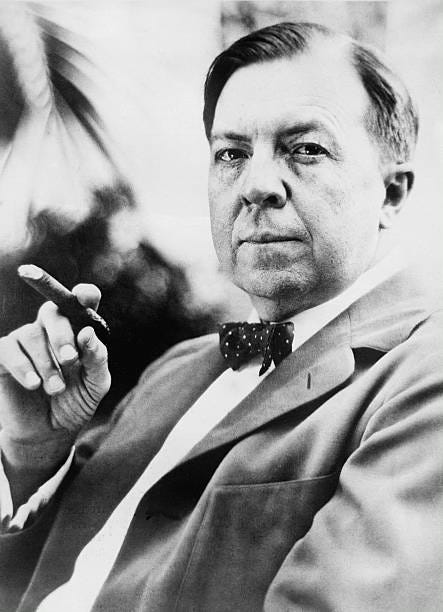Peering Into the Dawn of Disinformation
How a forgotten turn-of-the century author's obscure study of Germany's clever 1914-1918 propaganda tricks warned us about the future of psychological warfare
Intelligence services have never suffered from a lack of authors, journalists and other assorted scribblers. John Le Carré, Graham Greene, W. Somerset Maugham, and the poet Basil Bunting, all of whom did their bit for British intelligence, come to mind. So does Peter Matthiessen, who founded the well-regarded literary journal Paris Review with CIA funds and remains the only writer to have won the National Book Award for both nonfiction (The Snow Leopard, 1979) and fiction (Shadow Country, 2008) categories. However, Rupert Hughes, though obscure to the point where even literary footnotes are rarities, is virtually never mentioned.
Hughes’ obscurity is unfortunate for both intelligence and literary history. He arrived in the spy game at a time of enormous changes. Just as advances in World War One weaponry forever changed the prosecution of wars, so too did advances in communication and mass media turbocharge propaganda and disinformation. As an American military intelligence officer, Hughes was an eyewitness to these early efforts whose themes and methodology remain with us today.
To be clear, there is no modern literary equivalent of Rupert Raleigh Hughes. The estranged uncle of eccentric billionaire Howard Hughes, he wrote fiction for magazines, novels, nonfiction books on music, poems, essays, editorials, and newspaper articles in staggering quantity at the turn of the century and beyond. He shocked New York literary society with a pair of short stories written under the pseudonym Marmaduke Humphrey for the avant-garde magazine M’lle New York featuring a hard-luck prostitute memorably named Slab-sided Sal. (The pen name, a piece of puckish humor, is period slang dating back to the Elizabethan era. To “dine with Marmaduke Humphrey” was to miss a meal or not eat.) A prolific playwright, one of his plays, All for a Girl (1908), launched the career of a young Douglas Fairbanks. And at best count more than 50 films, ranging from the earliest of the silent movies to a 1950s noir were either penned by Hughes or used his work as source material. And along the way he was also a composer and songwriter. He would also later design and patent a combat knife for use in trench warfare based on the switchblade.
That he is largely unknown today is not surprising. He was very much a writer of his time catering to the tastes of a general audience of the day. Also not surprising is that he remains among the more obscure figures in intelligence history. However, as head of MI10*, the U.S. military intelligence arm that handled censorship, Hughes had a wide remit that ranged from traditional wartime censorship to the somewhat surprising early efforts of radio intercepts (contemporary SIGINT), in which he pioneered the use of mobile listening posts, deploying teams along the Mexican border and fixed stations in the American embassy in Mexico City and in Maine.
However, perhaps his most important work was written near the end of the war.




